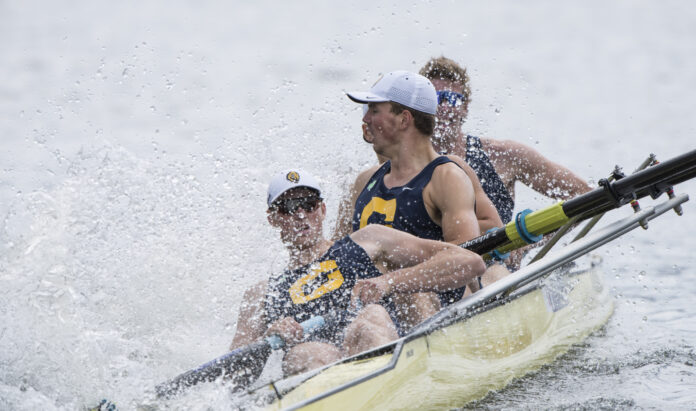BY BILL MANNING
PHOTO BY PETER SPURRIER
To continue reading…
This article is exclusively for Rowing News subscribers. For as little as $5 a month, you can get access to the best quality, independent reporting on all the issues that matter to the North American rowing community.
Already a subscriber? Login
Some coaches operate like the “snowplow parents” we increasingly hear about. They attempt to clear the road of all obstacles so that their athletes can achieve success as easily as possible. Though well intentioned, this is shortsighted. Coddling and excessively protecting athletes prevents them from learning to overcome adversity and develop their own resourcefulness.
As Annie Vernon highlights in her insightful book Mind Games, “talent needs trauma.” The best athletes are made partly through exposure to hardship and even failure. It’s in facing and overcoming setbacks and all manner of difficult situations that athletes grow stronger. Motivation is questioned and reaffirmed.
Success too early, or acquired too easily, develops expectations of immediate achievement. It creates the dangerous belief that talent alone will yield desired results without the application of sustained effort. Success based on talent alone is temporary at best. Eventually you run up against someone with more talent.
Overprotected athletes are underprepared athletes, and it falls on the coach to safely ready one’s rowers for the rigors of competition. Practice in rough water, don’t hide from it. Row through wakes. Start the top boat behind the lower boats and make them earn the win. Race faster teams. Row mixed lineups rather than having the best athletes always row together. Challenge them to go fast when they’re tired, not just when the conditions line up perfectly.
This learned resourcefulness is similar to how we learn a foreign language. You don’t learn to speak a new language in a classroom. You get introduced to it in a classroom. You learn to speak it when you’re immersed in it and required to speak it correctly. When there is an imperative need, you’re far more motivated than when everything is comfortable, routine, and predictable.
Those who prevail in competition often do so not in spite of the hurdles they’ve overcome, but because of them. These setbacks provide the stimulus for building confidence. We learn through adversity. Unmitigated success gives one confidence as long as the success continues uninterrupted. But the confidence that comes from prevailing under difficult conditions is deeper rooted and instills the belief in oneself that future, unknown obstacles can also be overcome. It’s no coincidence that what civilians call an “obstacle course” the military calls a “confidence course.”
Too many obstacles and rowing isn’t fun. Too few athletes do not mature, lack earned confidence, and are not capable of dealing with the inevitable adversity inherent in competition. Coaches need to strike the appropriate balance to best prepare their athletes.

